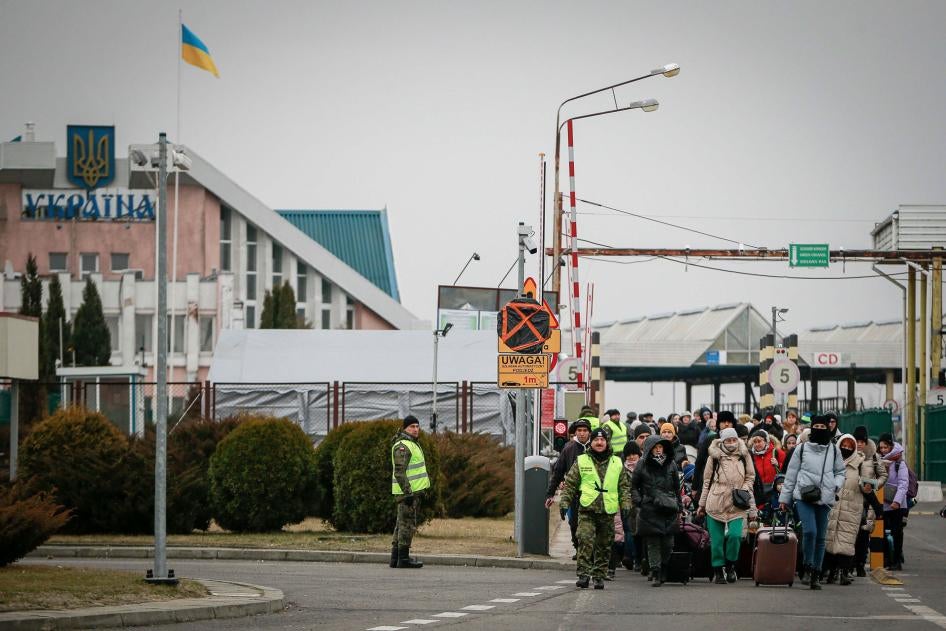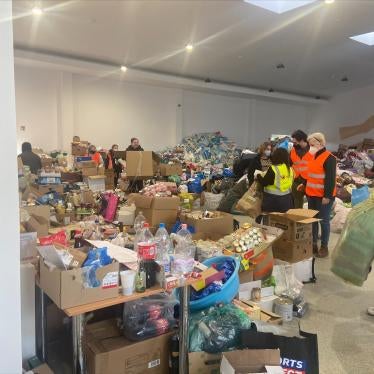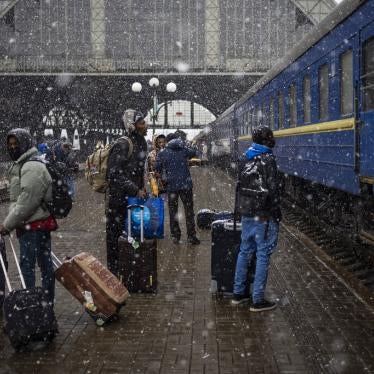The outpouring of solidarity and empathy for people fleeing the war in Ukraine is wonderful. Countries bordering Ukraine have opened their borders and practically waved people through. People have rushed to donate food and open their homes. The European Union as a bloc moved quickly to grant temporary protection to all Ukrainians and long-term foreign residents, invoking for the first time a 2001 directive that created a mechanism to give uprooted people the chance to stay, work, and put their children in school automatically – without the delays and bureaucracy of the normal asylum procedure.
For those of us following these issues, it is hard to miss the stark contrast of the last few weeks with Europe’s harsh response to people fleeing other wars and crises. For decades, the EU has focused obsessively on trying to seal its external borders by outsourcing responsibility to countries outside the EU and through unlawful and violent pushbacks. A staggering number of people from Asia, Africa, and the Middle East die every year attempting to reach Europe’s borders.
Even as we applaud the generosity being shown people fleeing Ukraine, we have to question why the EU didn’t use the 2001 directive in 2015, when more than one million Syrians, Afghans, and Iraqis arrived at European shores. And remember that when the Taliban took over Afghanistan last year, European rhetoric was all about containing Afghans in the region rather than extending the hand of safety.
While the world’s attention is riveted on the horrific drama unfolding in Ukraine, the effects of EU policies continue to play out on the bodies of Black and brown people. On March 3, Spanish Television filmed a young man struggling to climb down the fence separating Morocco and Melilla, one of two Spanish enclaves in North Africa, as Spanish border guards waited below. The second he hit the ground, they pounced, kicking him and relentlessly beating him with their truncheons. That violence and contempt was seen a few short months ago on Poland’s border with Belarus and is echoed at borders across Europe, including Greece, Croatia, and in the Mediterranean Sea.
Geopolitical considerations and proximity do not fully capture or explain the EU’s generous response to Ukrainians and the treatment reserved for others from outside Europe. Solidarity from ordinary Europeans towards those in need is nothing new. It’s now time for the EU to reckon with and change the ways in which its migration and asylum policies disproportionately penalize Black and brown people. This crisis has shown us Europe can do extraordinary things if it tries.









